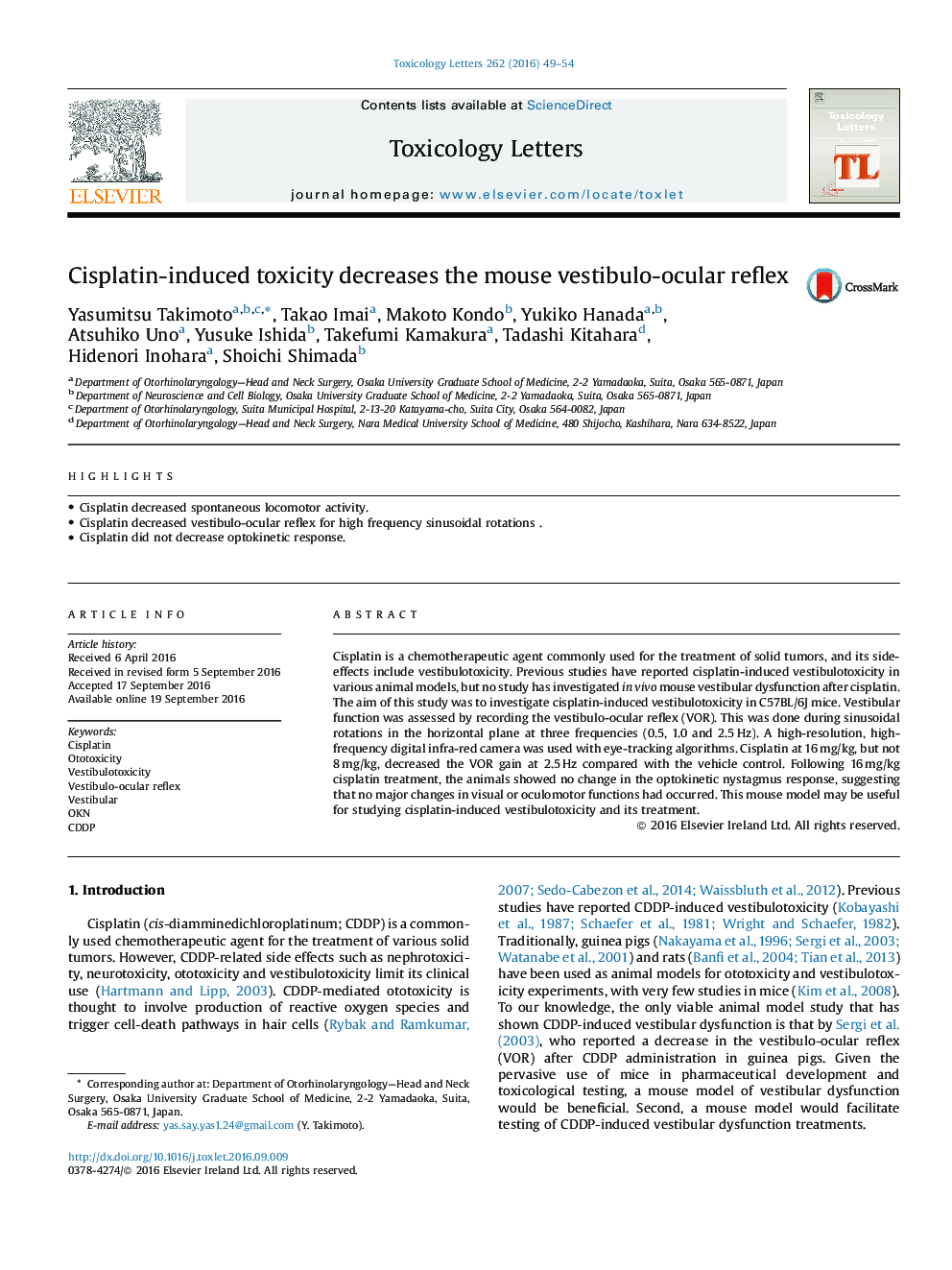| Article ID | Journal | Published Year | Pages | File Type |
|---|---|---|---|---|
| 5562305 | Toxicology Letters | 2016 | 6 Pages |
â¢Cisplatin decreased spontaneous locomotor activity.â¢Cisplatin decreased vestibulo-ocular reflex for high frequency sinusoidal rotations .â¢Cisplatin did not decrease optokinetic response.
Cisplatin is a chemotherapeutic agent commonly used for the treatment of solid tumors, and its side-effects include vestibulotoxicity. Previous studies have reported cisplatin-induced vestibulotoxicity in various animal models, but no study has investigated in vivo mouse vestibular dysfunction after cisplatin. The aim of this study was to investigate cisplatin-induced vestibulotoxicity in C57BL/6J mice. Vestibular function was assessed by recording the vestibulo-ocular reflex (VOR). This was done during sinusoidal rotations in the horizontal plane at three frequencies (0.5, 1.0 and 2.5Â Hz). A high-resolution, high-frequency digital infra-red camera was used with eye-tracking algorithms. Cisplatin at 16Â mg/kg, but not 8Â mg/kg, decreased the VOR gain at 2.5Â Hz compared with the vehicle control. Following 16Â mg/kg cisplatin treatment, the animals showed no change in the optokinetic nystagmus response, suggesting that no major changes in visual or oculomotor functions had occurred. This mouse model may be useful for studying cisplatin-induced vestibulotoxicity and its treatment.
